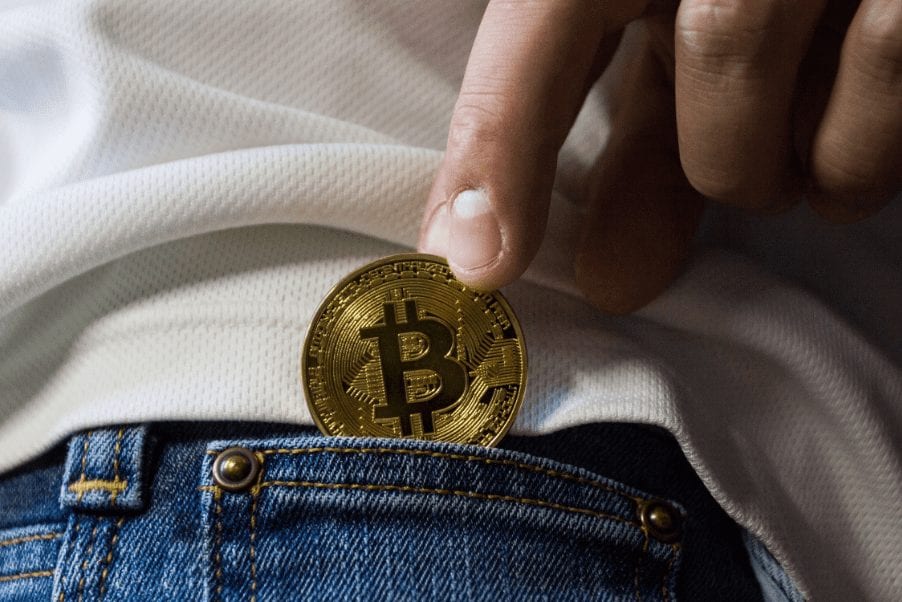What Is Bitcoin?
Bitcoin is a digital currency that was launched in January 2009. It is based on the principles presented in a whitepaper by the enigmatic and pseudonymous Satoshi Nakamoto. 1 The name of the individual or people who invented the technique is still unknown. Bitcoin promises reduced transaction costs than standard online payment methods and, unlike government-issued currencies, is run by a decentralized authority. Bitcoin is a sort of monetary unit. There is no physical bitcoin; rather balances are recorded on a public ledger that everyone can see. A tremendous amount of processing power is used to verify every bitcoin transaction. Bitcoin is neither issued or guaranteed by any banks or governments, nor is it worth anything as a commodity. Despite the fact that it is not legal money in most areas of the globe, bitcoin is extremely popular and has sparked the creation of hundreds of rival cryptocurrencies known as altcoins. The term “Bitcoin” is frequently shortened as “BTC.”
How Does Bitcoin Work?
Bitcoin is based on a distributed digital ledger known as a blockchain. Blockchain, as the name indicates, is a connected body of data made up of units called blocks that include information about each and every transaction, including date and time, total value, buyer and seller, and a unique identification code for each trade. Entries are linked in chronological sequence to form a digital chain of blocks. “Once a block is uploaded to the blockchain, it becomes accessible to anybody who chooses to examine it, functioning as a public log of cryptocurrency transactions,” explains Stacey Harris, consultant for Pelicoin, a cryptocurrency ATM network.
Blockchain is decentralized, which implies that it is not controlled by a single entity. “It’s like a Google Doc that anyone can edit,” explains Buchi Okoro, CEO and co-founder of African bitcoin exchange Quidax. “No one owns it, but anybody with a connection to it may add to it. And when different individuals update it, your copy is updated as well.”
How Does Bitcoin Mining Work?
The process of adding new transactions to the Bitcoin blockchain is known as mining. It’s a difficult job. Bitcoin miners utilize a technique known as proof of work, which involves deploying computers in a race to solve mathematical riddles that validate transactions. The Bitcoin code pays miners with fresh Bitcoins to motivate them to keep racing to solve the riddles and maintain the entire system. According to Okoro, “this is how new currencies are created” and new transactions are uploaded to the blockchain.
Bitcoin mining is considerably less profitable than it once was, making it even more difficult to recoup growing computational and electricity expenses. “When this technology first came out in 2009, every time you got a stamp, you got a much larger amount of Bitcoin than you do today,” Flori Marquez, co-founder of BlockFi, a crypto wealth management company, says. “There are more and more transactions [today], so] the amount you are paid for each stamp is decreasing.” By 2140, it is projected that all Bitcoins will have entered circulation, implying that mining would produce no new coins and miners will have to rely on transaction fees.
How Much Energy Does Bitcoin Actually Consume?
Organizations all around the globe are currently under pressure to reduce their use of nonrenewable energy sources and carbon emissions into the atmosphere. However, determining how much consumption is excessive is a difficult topic that is linked with societal discussions about our values. After all, determining which products and services are “worth” spending these resources on is a matter of values. As cryptocurrencies, particularly Bitcoin, have surged in popularity, energy usage has become the newest flashpoint in the wider debate about what and who digital currencies are actually beneficial for.
How do people get Bitcoins?
People may have their computers execute transactions for everyone in order for the Bitcoin system to function. The machines are designed to solve very complex math problems. They are occasionally rewarded with a Bitcoin that the owner can retain. People construct up powerful machines only to try to obtain Bitcoins. This is known as mining.
However, the sums are getting increasingly difficult to prevent an excessive number of Bitcoins from being created. If you began mining now, it may take years before you received a single Bitcoin. You may wind up spending more money on computer electricity than the Bitcoin is worth.
Why do people want Bitcoins?
Some individuals like Bitcoin because it is not governed by the government or banks. People can also spend their Bitcoins in a relatively anonymous manner. Despite the fact that all transactions are logged, no one would know which ‘account number’ belonged to you until you informed them.
Elon Musk, the world’s richest man, stated his support for Bitcoin in an online conversation with social media followers in January 2021. He even changed his Twitter bio to read “#bitcoin.” He has regularly expressed his support for online currencies in recent years, causing significant changes in their valuations as a result of his own wealth and influence.
How to Buy Bitcoin
The majority of Bitcoin purchases are made through exchanges like Coinbase. Exchanges enable you to purchase, trade, and hold cryptocurrencies, and creating an account is similar to opening a brokerage account in that you must authenticate your identity and supply some form of money, such as a bank account or debit card. Coinbase, Kraken, and Gemini are all major exchanges. You may also purchase Bitcoin using a broker such as Robinhood.









Leave a Reply
View Comments